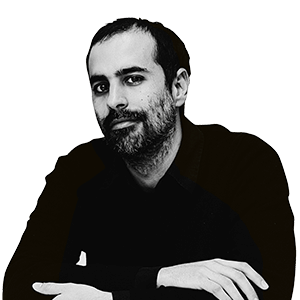The adventure of learning with a dedicated and charismatic teacher
Ruth Beckermann documented the daily life of an elementary school classroom for three years in 'Our Dear Teacher'.


BarcelonaIn all the cinema released in 2025 there is surely no scene as moving as the moment in the Austrian documentary Our dear teacher, which hits theaters this Friday, tells the story of an elementary school teacher who begins to cry on the last day of school before maternity leave and ends up embracing her students in a heartwarming embrace, all of whom are also weeping. The image is the culmination of the relationship of sincere affection and respect that the teacher has built over the years with the children, most of whom are newcomers or children of migrant parents and who have a precarious command of the German language. The teacher's dedication and determination, as well as the students' progress, are the focus of the documentary. Ruth Beckermann (Vienna, 1952), who filmed the daily life of the classroom for three years. "I wanted to know how children in Vienna live today, especially those from other countries, and see how they get by and how the school system treats them," explains the director.
The classroom Beckermann films is in a public school in the working-class district of Favoriten, with a large population of Turkish and Serbo-Croatian origin. The teacher, Ilkay Idiskut, is also of Turkish origin, a charismatic teacher who inspires the children with songs and dances and guides them with rigor and patience as they acquire knowledge. "When I met her, I knew I wanted to film her class," says Beckermann. "She's very authentic, and probably because she's from a Turkish family, she's not afraid to talk about any subject with the children. When someone says women shouldn't go swimming or wear bikinis, she confronts them, and they discuss it. Just a strong, firm person, but also the one who gets really angry [about a boy's cruelty to a classmate]. And she's also a bit of an actress, because the class is like a theater: if you don't act interestingly, they don't listen to you."
Taking the most important exam of your life at age 10
Our dear teacher It shows the children's development over three years and accompanies them on the adventure of learning and discovering their lives. Without voiceover and with an observational style that recalls that of direct cinemaThe film reveals the children's personalities in fascinating conversations with the teacher, ranging from the war in Ukraine to the religious values of each family. And the children's indifference to the filming is complete: "On the third day, they forgot about the camera," explains Beckermann. The documentary also highlights the precariousness of the Austrian education system, lacking staff and resources: in a center (the largest in Vienna) with no psychologist or social worker, the teacher must cope alone with some children who don't speak a word of German, and when she goes on maternity leave, the substitute teacher is late.
Children face yet another challenge: at age 10, they are separated based on proficiency into two systems: one for lower secondary education and one for university preparation. "Only in Austria and Germany are children separated at age 10; it's horrible and stupid," says Beckermann. "It's too early. Now there's a new government that wants to extend primary school by two more years and will separate them at age 12, but I still think it's too early. In most countries, it's done at age 1, and in many of them, it's done at age 1. The conservative parties don't want these children to progress, but rather to work in construction or cleaning."
Beckermann explains that the documentary, which has been screening in Austria for eight months, has generated a great deal of debate in her country: "All the politicians have seen it, even the mayor of Vienna and the president. There's a lot of talk about education, but it's not an easy problem to solve." For the director, the biggest obstacle facing the children in her documentary is that they only speak German in class, and with others who also speak it with difficulty. "The big difference between the teacher and her students is that, when she was in school, she was the only student of Turkish origin in her class," Beckermann points out. "The obvious solution would be to mix the children from neighborhoods with the largest immigrant populations with the rest, but you can't put the children on buses and send their children to their bars and other middle-class parents. And many middle-class parents. Others."
